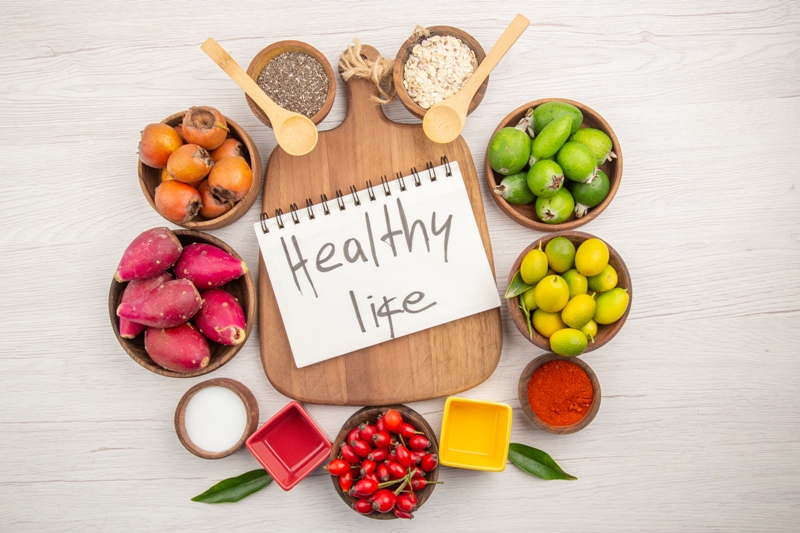🥗 Diet and Nutrition for Pain Relief: Embracing a Path to Wellness 🌿
The age-old adage “You are what you eat” holds a profound truth, especially when it comes to managing pain and inflammation. While medication can play a crucial role, a balanced diet and specific nutritional approaches can significantly contribute to reducing pain and inflammation. In this blog post, we will embark on a journey through the world of diet and nutrition, exploring how it can serve as a powerful ally in the quest for pain relief.
The Link Between Diet and Inflammation 🍏
- Pro-Inflammatory Foods: Certain foods, such as processed sugars, refined carbohydrates, and trans fats, can contribute to inflammation in the body. These should be consumed in moderation or avoided altogether.
- Anti-Inflammatory Foods: Conversely, many natural foods possess anti-inflammatory properties. These include fruits, vegetables, whole grains, nuts, seeds, and fatty fish rich in omega-3 fatty acids. These foods can help mitigate inflammation and support overall well-being.
Balanced Diet: Nourishing the Body, Easing the Pain 🍽️
- Whole, Unprocessed Foods: Emphasize whole, unprocessed foods in your diet. These foods are rich in nutrients, fiber, and antioxidants, which are essential for reducing inflammation and supporting overall health.
- Colorful Fruits and Vegetables: Aim for a rainbow of colors on your plate. Different colored fruits and vegetables provide a variety of antioxidants and phytochemicals that combat inflammation.
- Lean Proteins: Incorporate lean sources of protein like poultry, fish, legumes, and tofu. Protein is crucial for tissue repair and immune function.
The Mediterranean Diet: A Blueprint for Pain Relief 🥑🍅
The Mediterranean diet is renowned for its potential to reduce inflammation and promote overall health. It emphasizes whole, nutrient-dense foods and healthy fats.
- Olive Oil: The cornerstone of the Mediterranean diet, extra virgin olive oil, is rich in monounsaturated fats and antioxidants. These properties help combat inflammation and support heart health.
- Fatty Fish: Fatty fish like salmon, mackerel, and sardines are abundant in omega-3 fatty acids, which are potent anti-inflammatory agents.
- Fruits and Vegetables: The Mediterranean diet places a strong emphasis on fresh, seasonal produce, providing a rich array of vitamins, minerals, and antioxidants.
- Nuts and Seeds: These are excellent sources of healthy fats, fiber, and essential nutrients. They contribute to satiety and provide anti-inflammatory benefits.
Limiting Triggers: Foods to Avoid 🚫
- Processed Sugar: Excessive consumption of sugary foods and beverages can lead to inflammation. Opt for natural sweeteners like honey or enjoy whole fruits in moderation.
- Refined Grains: White bread, pasta, and other refined grains have a high glycemic index and can contribute to inflammation. Opt for whole grains like quinoa, brown rice, and whole wheat.
- Trans Fats: Found in partially hydrogenated oils, trans fats are known to promote inflammation. Read labels and avoid products containing these harmful fats.
Staying Hydrated: The Unsung Hero of Pain Relief 💧
Adequate hydration is often overlooked in pain management. Water is essential for maintaining bodily functions, including joint health and circulation. Aim to drink plenty of water throughout the day to support your overall well-being.
Consulting a Professional: Personalizing Your Pain Relief Journey 🩺
It’s important to remember that individual dietary needs can vary. Consulting with a healthcare professional or a registered dietitian can provide personalized guidance on crafting a diet that best supports your unique needs and health goals.
Conclusion: Nourishing Your Way to Wellness 🌟🍎
Incorporating a balanced diet and adopting nutritional approaches like the Mediterranean diet can be transformative in the pursuit of pain relief and reduced inflammation. By choosing whole, nutrient-dense foods and being mindful of potential triggers, you empower yourself to take an active role in your well-being. Embrace this journey with patience and self-compassion, and relish in the healing power of nourishment. Remember, you have the ability to nourish your body, ease your pain, and thrive in wellness. 🌿🥗





